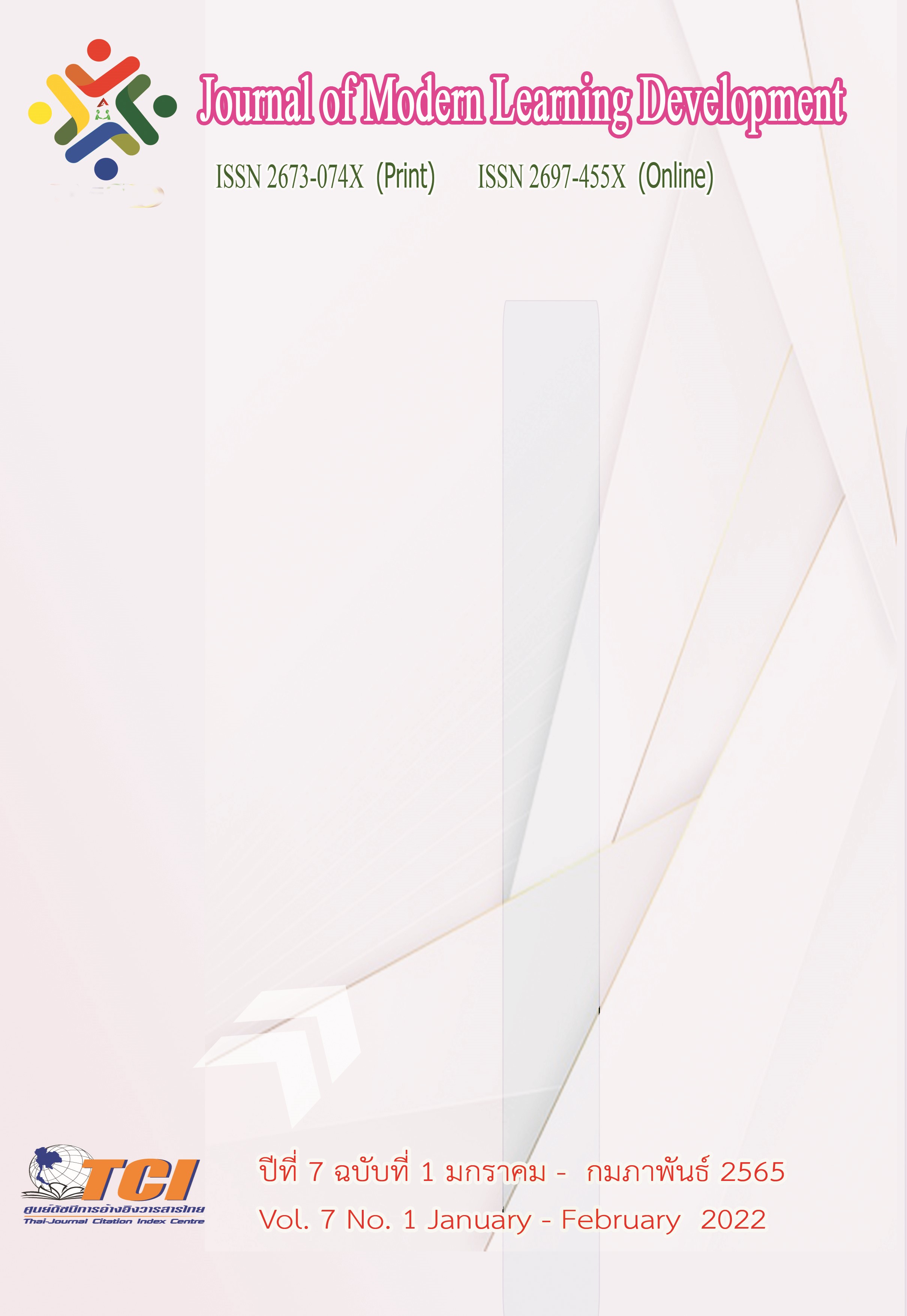Problems Solving Guideline of Objective and Key Results (OKRs) : A Case Study of Khon Kaen University
Main Article Content
Abstract
The objectives of this independent study are 1) problems and causes of organizational management with such tools and 2) suggest solutions to problems arising from OKRs. The qualitative study was conducted using in-depth interviews and with three interviewee selection criteria, resulting in 10 Key information as executives and personnel of Khon Kaen University. The QC Circle process has been used to prioritized the importance of problems and use the Ishikawa diagram to find the root cause of the problem.
The result from 1) importance of problem did not achieve to the goals, and the result from cause and effect analysis are 4 main causes can be summarized as follows: 1.1) Personnel, the OKRs, which set by the University, were not importance or do not feel involved in the operation of OKRs. 1.2) Materials, which are the performance reporting system is complicated 1.3) Process, that the University has unclear direction of operation and the organizational structure is inconsistent with the operations according to the OKRs. 1.4) Environmental, with the Covid 19 situation as a result, the operation did not meet the goals some activities cannot be performed. Therefore, 2) it was suggested that 2.1) Knowledge training program for those involved in OKRs. 2.2) A project to enhance understanding until it becomes an organizational culture in making OKRs for the community in KK University. 2.3) Follow up and evaluate the success of OKRs using OKRs's Software. 2.4 Reduce the number of OKRs to achieve more focus OKRs.
Article Details
References
กองยุทธศาสตร์ สำนักงานอธิการบดี มหาวิทยาลัยขอนแก่น (2563). รายงานผลการดำเนินงานผลลัพธ์ตามวัตถุประสงค์ (OKRs). ฝ่ายบริหาร มหาวิทยาลัยขอนแก่น.
เกศินี ประทุมสุวรรณ. (2561). การประยุกต์ใช้แนวคิด OKRs กับโครงการสร้างเสริมสุขภาวะ. วารสารรามคำแหงฉบับมนุษยศาสตร์. 38 (2). 111-128.
นิภาพรรณ เจนสันติกุล. (2563). การบริหารองค์การด้วยการประยุกต์ใช้แนวคิด Objective and Key Results Concept. วารสารคณะมนุษยศาสตร์และสังคมศาสตร์ มหาวิทยาลัยขอนแก่น. 37 (2). 367-382.
นภดล ร่มโพธิ์. (2561). พัฒนาองค์กรและชีวิตด้วยแนวคิด OKRs. (พิมพ์ครั้งที่ 2). นนทบุรี : เอ็นพี อิบลเทลลิเจนซ์
พฤหัส ต่ออุดม. (2561). การถ่ายทอดกลยุทธ์สู่ความสำเร็จด้วย OKRs : โรงพยาบาลธรรมศาสตร์เฉลิมพระเกียรติ. ออนไลน์. สืบค้นเมื่อ 12 พฤษภาคม 2564.แหล่งที่มา: https://ขอนแก่นu.world/r44us.
อังคณา แซ่เจีย. (2561). การวัดผลการปฏิบัติงานหอสมุดแห่งมหาวิทยาลัยธรรมศาสตร์ด้วย Objective and Key Result (OKRs). วิทยานิพนธ์บริหารธุรกิจมหาบัณฑิต คณะพาณิชยศาสตร์และการบัญชี. บัณฑิตวิทยาลัย: มหาวิทยาลัยธรรมศาสตร์.


